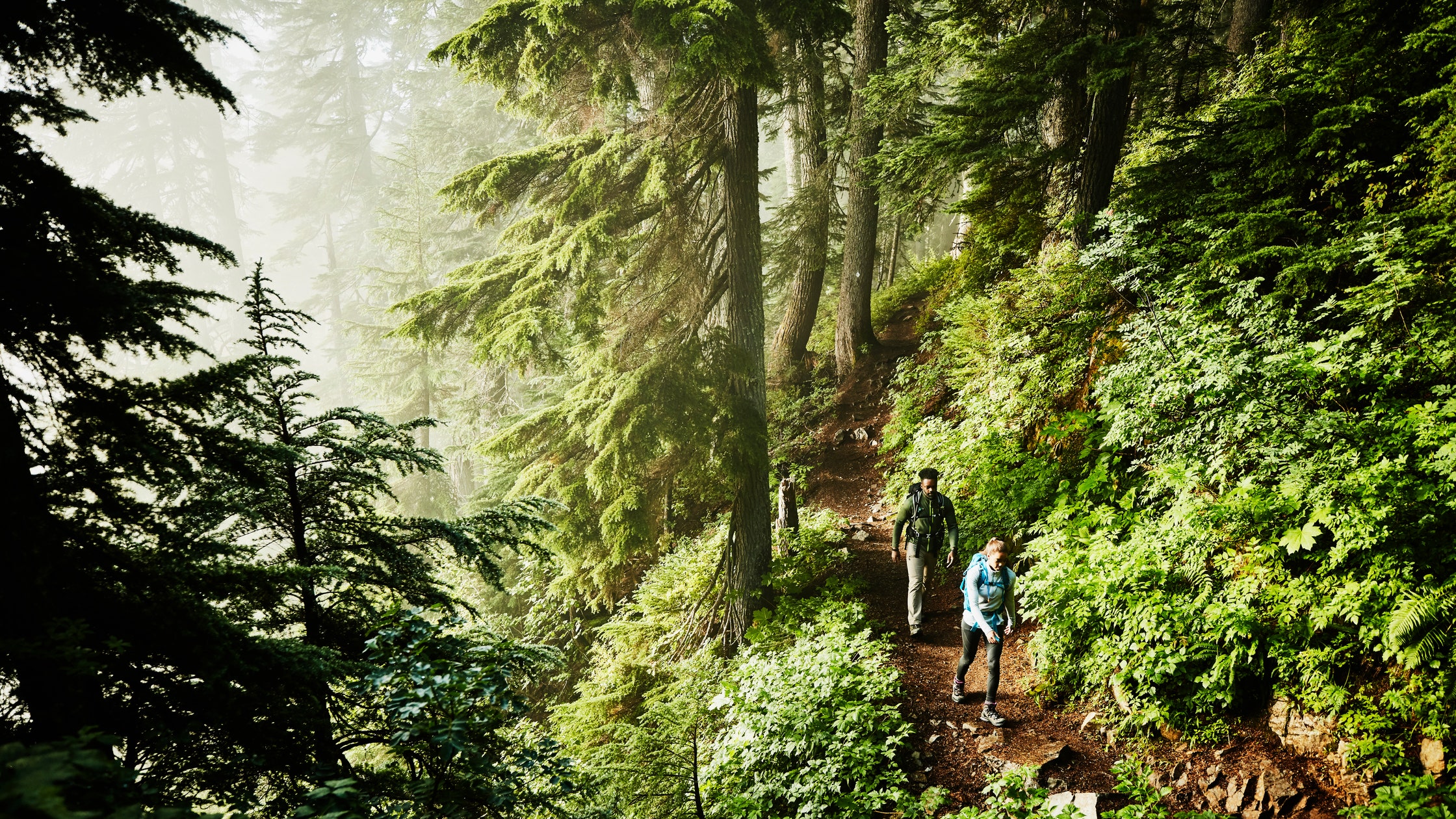Ecotherapy: Reconnecting with Nature for Well-Being
A new wellness trend is reverting back to Mother Nature to find the best medicine for the mind and body.
16 April 2023
The Importance of Nature in Our Lives
When was the last time you strolled through a forest without your phone, lay down under the stars, or swam in a natural body of water? For an increasing number of us, daily contact with the natural world is brief. It is estimated that two-thirds of the world’s population will live in cities by 2050, with 83 percent of people in the UK already leading metropolitan lives. Recent surveys suggest that most children in the UK spend less time outdoors than prison inmates, playing outside 50 percent fewer hours than their parents’ generation. Consequently, our increasingly urban, technology-fuelled lives are taking a toll on our mental health, leading to increased anxiety and chronic stress.
The Rise of Ecotherapy
Against this bleak picture, however, a counterforce is emerging: a biophilic impulse to find refuge and healing in the natural world. Whether it’s psychedelic plant medicine, woodland walks, or community gardening, many are now looking to nature as an antidote to modern life’s stresses.
What is Ecotherapy?
At the heart of this drive towards the natural is ecotherapy—an umbrella term for therapies that help us reconnect with nature. From pet therapy to nature arts and crafts, ecotherapy can take many forms. Its unifying premise is that humans flourish in nature, and that connecting with the natural world can help us feel happier, calmer, and more resilient against the stresses of life.
While ecotherapy is a relatively new concept in the West, ancient and indigenous cultures have long regarded nature as a source of healing. The concept of grounding, for instance, has its roots in traditional Chinese medicine. Similarly, forest bathing, which has gained global traction, originates from ancient Shinto and Buddhist practices in Japan. The UK’s fast-growing ecotherapy scene owes much to these long-standing cultural heritages.
The Practice of Ecotherapy
Adrian Harris, an experienced ecotherapist, has been practicing for over a decade. He employs a “walk and talk” approach, where nature serves as a co-therapist. “We’ll meet in a local green space,” he explains, “which could be a park, riverside, or wood. This is our therapy space, allowing the client to walk, sit, or explore.” Nature often facilitates new insights during sessions. “Clients often find that the natural world mirrors aspects of their lives,” he observes. Being in nature enhances our vitality and aids in processing thoughts and emotions. Harris emphasizes, “Just being in nature is calming, helping clients manage difficult emotions like loneliness and anxiety.”
Benefits of Ecotherapy
We’ve all felt the restorative effects of a bracing walk, breathed easier in fresh countryside air, or gained clarity by looking out at a vast expanse of sea or a starry sky. Neuroscientific research increasingly confirms what poets and Eastern philosophers have long understood: that nature is beneficial for our health. Studies show that immersion in green spaces can improve cognitive function, boost psychological well-being, and guard against physical ill health.
Ecotherapy combines the intrinsic benefits of nature with therapeutic practice. “Spending time in nature can improve your self-esteem, provide a greater sense of personal autonomy, and offer deeper meaning to your life,” notes Harris. He has observed an increase in clients struggling with climate anxiety as our relationship with the natural world becomes more strained.
Engaging with Nature Mindfully
For mindfulness practitioners, connecting with nature can enhance self-connection. “Nature doesn’t judge us,” explains Claire Thompson, a mindfulness workshop facilitator. “When we spend time in nature, we can simply be who we are, without societal pressures.” By cultivating mindfulness of our experiences in the natural world, we become more attuned to our needs and what truly matters to us.
How to Try Ecotherapy in the UK
There are numerous ecotherapy practitioners across the UK conducting workshops, retreats, and one-to-one sessions. Engaging with nature can be as simple as walking in a local park, gardening, or bringing plants into your home—activities that can significantly enhance your well-being.
Adrian Harris, Exeter: An ecotherapist offering ‘walk and talk’ therapy in Exeter.
Claire Thompson, Cambridge: A mindfulness practitioner and workshop facilitator.
Estelle Asselin (The Connective Space), North London: An ecotherapist and forest therapy guide, offering one-to-one counseling and group experiences.
Forest Farm Peace Garden, North East London: A mental health and environment project running workshops, events, and volunteering opportunities.
Centre for Ecotherapy, Brighton: A community space providing free nature-based therapies for vulnerable groups.
Wilderness Foundation UK, Mann Wood / Chatham Green: Therapeutic foundation offering Wilderness Therapy retreats and personal sessions.
The Centre for Natural Reflection, Derbyshire: Outdoor therapy sessions with psychotherapist Hayley Marshall.
Live Wild, West Yorkshire and Manchester: Courses encouraging rediscovery of the wild within, through activities like foraging and wild singing.
Venture Trust, Scotland: Outdoor therapy programmes operating throughout Scotland.
Urban Growth, London: Community gardening workshops across London.




